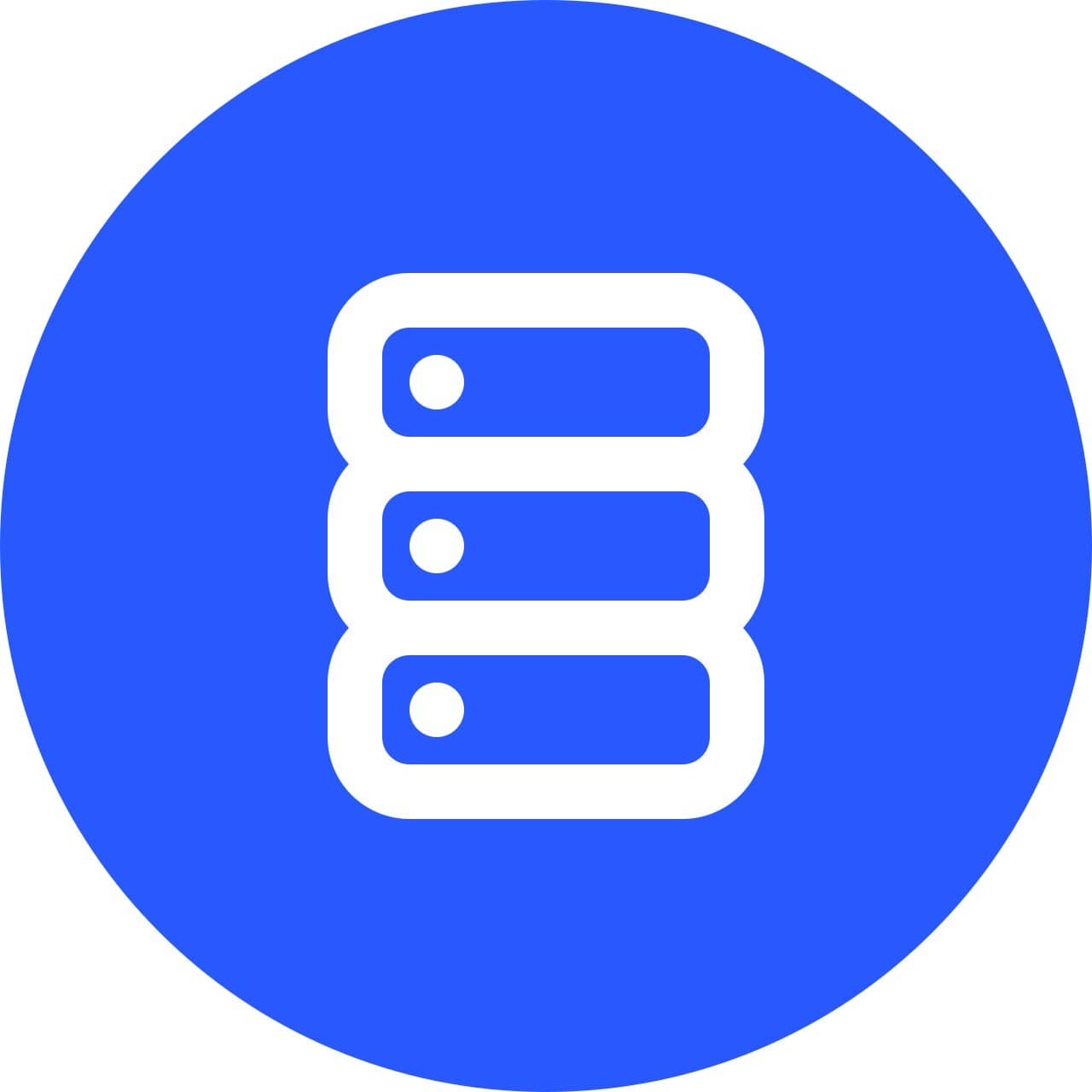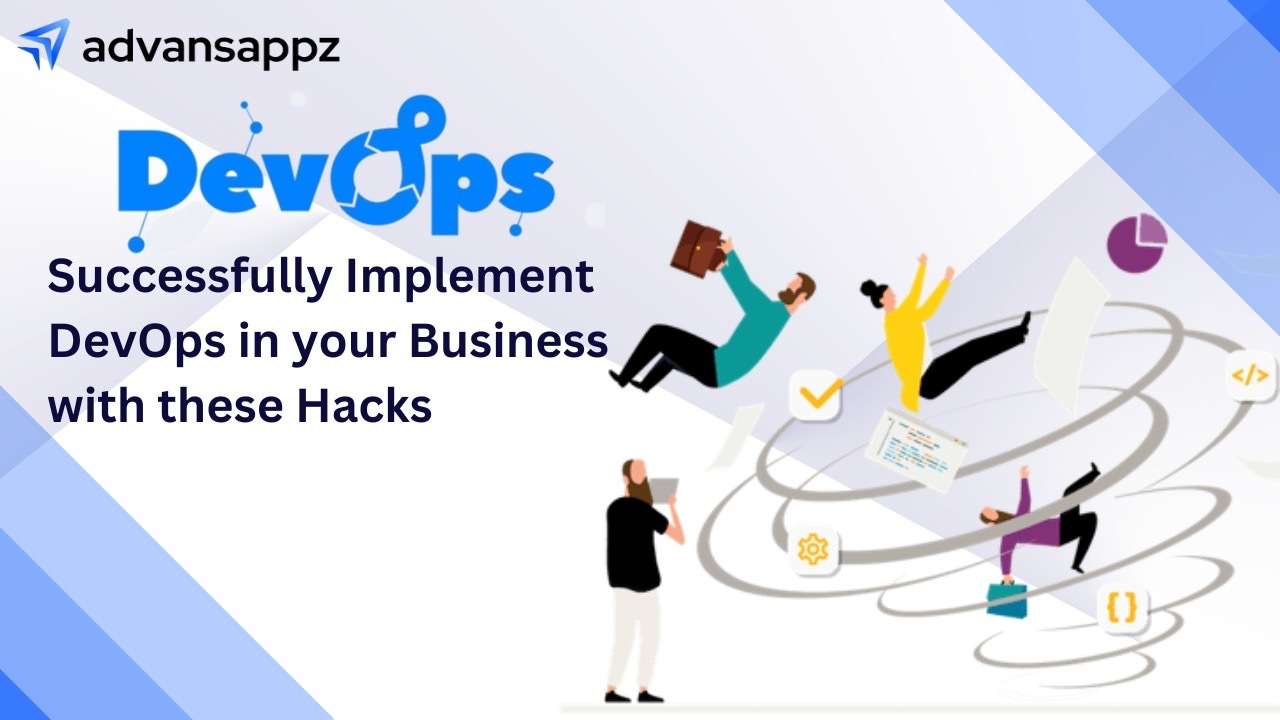DevOps
Enhance your software delivery process with our DevOps expertise
advansappz is a leading provider of DevOps services designed to help organizations streamline their software delivery process and improve overall performance. Our team of experienced DevOps engineers and consultants will help you maximize the benefits of DevOps, including increased efficiency, speed, and reliability.

Experience Next-gen software capabilities
We will create a customised testing strategy or enhance your current, ineffective QA procedures.

- Improved collaboration between development and operations teams
- Faster time-to-market for software products
- Improved software quality through continuous integration and delivery

- Increased competitiveness through faster and more reliable software delivery
- Improved customer satisfaction through enhanced software quality
- Cost savings through automation and efficient resource utilization

- Improved job satisfaction through increased collaboration and teamwork
- Improved work-life balance through automation and streamlined processes
DevOps Automation
Our DevOps automation services help organizations achieve continuous delivery and deployment of software products.
01
Continuous Development and Release
Our DevOps engineers and consultants help organizations automate the software development process, from code development to deployment, to reduce time-to-market.
02
Continuous Testing
Our team will help you implement continuous testing to ensure that software is tested at every stage of the development process, resulting in higher quality software.
03
Continuous Observation
Our DevOps experts will help you implement monitoring and observability to ensure that software is functioning as intended and to quickly identify and resolve any issues that arise.
04
Continuous Evaluation and Improvement
Our DevOps team will work with you to continuously evaluate and improve your DevOps processes, ensuring that your organization is always at the forefront of the latest DevOps best practices.
Frequently Asked Questions
Do you have additional questions?
DevOps is a set of practices and cultural philosophies that combines software development (Dev) and IT operations (Ops) to enable organizations to deliver software applications and services more rapidly, reliably, and efficiently. It emphasizes collaboration, automation, continuous integration, and continuous delivery to streamline the software development and deployment lifecycle.
Key aspects of DevOps include:
Collaboration: DevOps promotes collaboration and communication between development teams and operations teams. It breaks down silos and encourages cross-functional collaboration to improve efficiency and align goals.
Automation: DevOps advocates for the automation of manual and repetitive tasks throughout the software development and deployment process. Automation helps eliminate human error, accelerate processes, and ensure consistency.
Continuous Integration (CI): CI involves frequently integrating code changes from multiple developers into a shared repository. It aims to catch integration issues early, maintain code quality, and enable rapid feedback and collaboration among team members.
Continuous Delivery (CD): CD extends CI by automating the deployment process, allowing software applications to be released to production environments more frequently and reliably. CD ensures that applications are continuously tested, deployed, and ready for production with minimal manual intervention.
Infrastructure as Code (IaC): IaC treats infrastructure provisioning and management as code, allowing for the automated and consistent deployment of infrastructure resources. This approach enables scalability, repeatability, and version control of infrastructure configurations.
Monitoring and Feedback: DevOps emphasizes the monitoring of applications and infrastructure to gain insights into performance, usage patterns, and issues. Monitoring helps identify bottlenecks, improve system reliability, and provide feedback loops for continuous improvement.
Culture and Collaboration: DevOps promotes a culture of shared responsibility, trust, and collaboration across teams. It fosters a mindset of continuous learning, experimentation, and innovation, encouraging individuals to take ownership of their work and embrace change.
By adopting DevOps principles, organizations can achieve faster time-to-market, improved product quality, enhanced customer satisfaction, and greater business agility. DevOps practices enable teams to work together more effectively, streamline development processes, automate deployments, and respond to customer needs and market demands in a more efficient and timely manner.
DevOps is not specifically coding itself, but it heavily involves coding as part of its practices. DevOps focuses on the integration and collaboration between software development (Dev) and IT operations (Ops) teams, aiming to streamline the software development and deployment lifecycle.
While coding is a crucial aspect of software development, DevOps encompasses broader principles and practices beyond just writing code. It emphasizes the collaboration, automation, and integration of development and operations processes to enable faster and more reliable software delivery.
DevOps encompasses several key areas that organizations focus on to implement and improve their DevOps practices. While the scope may vary, here are four common areas of emphasis in DevOps:
Culture: DevOps emphasizes building a collaborative and cooperative culture within the organization. This involves breaking down silos between development, operations, and other teams, fostering effective communication, and promoting shared ownership and responsibility. Cultivating a culture of continuous learning, experimentation, and innovation is also important in DevOps.
Automation: Automation plays a crucial role in DevOps. It involves automating manual and repetitive tasks throughout the software development and deployment lifecycle. This includes automating build processes, testing, deployment, configuration management, and infrastructure provisioning. Automation improves efficiency, reduces errors, and enables faster and more reliable software delivery.
Process: DevOps focuses on streamlining and optimizing processes to enable faster, more frequent, and reliable software releases. This includes practices such as continuous integration (CI), which involves frequently integrating code changes from multiple developers into a shared repository. Continuous delivery (CD) extends CI by automating the deployment process, ensuring that software applications are ready for production at any time. Process improvement in areas like release management, incident management, and change management is also key in DevOps.
Tools and Technology: DevOps leverages a variety of tools and technologies to support its practices and objectives. These tools assist in areas such as version control, continuous integration, configuration management, monitoring, and collaboration. Examples include Git for version control, Jenkins or GitLab for continuous integration, Ansible or Chef for configuration management, and monitoring tools like Prometheus or ELK Stack. Choosing the right tools and technologies that align with the organization’s requirements is an important consideration in implementing DevOps.
DevOps and Python are not directly comparable as they serve different purposes. DevOps is a set of practices and cultural philosophies that focuses on streamlining software development and deployment processes, fostering collaboration, and promoting automation and continuous improvement. On the other hand, Python is a programming language known for its simplicity, versatility, and extensive libraries that enable developers to build a wide range of applications.
While learning Python can be relatively straightforward compared to some other programming languages, implementing DevOps practices requires a deeper understanding of software development, operations, automation tools, and infrastructure management. DevOps involves integrating various tools and technologies, establishing effective communication and collaboration between teams, and adopting a mindset of continuous learning and improvement.
Python can certainly be utilized in DevOps processes. It is widely used for scripting, automation, and configuration management tasks. Python libraries and frameworks, such as Ansible, Fabric, and SaltStack, provide tools for infrastructure automation and orchestration in DevOps environments. Python’s simplicity and readability make it a popular choice for writing automation scripts and developing tools that aid in the DevOps workflow.
Connect with advansappz to make your development pipeline more efficient
Our team of experts will be happy to assist you in enhancing your software delivery process.






